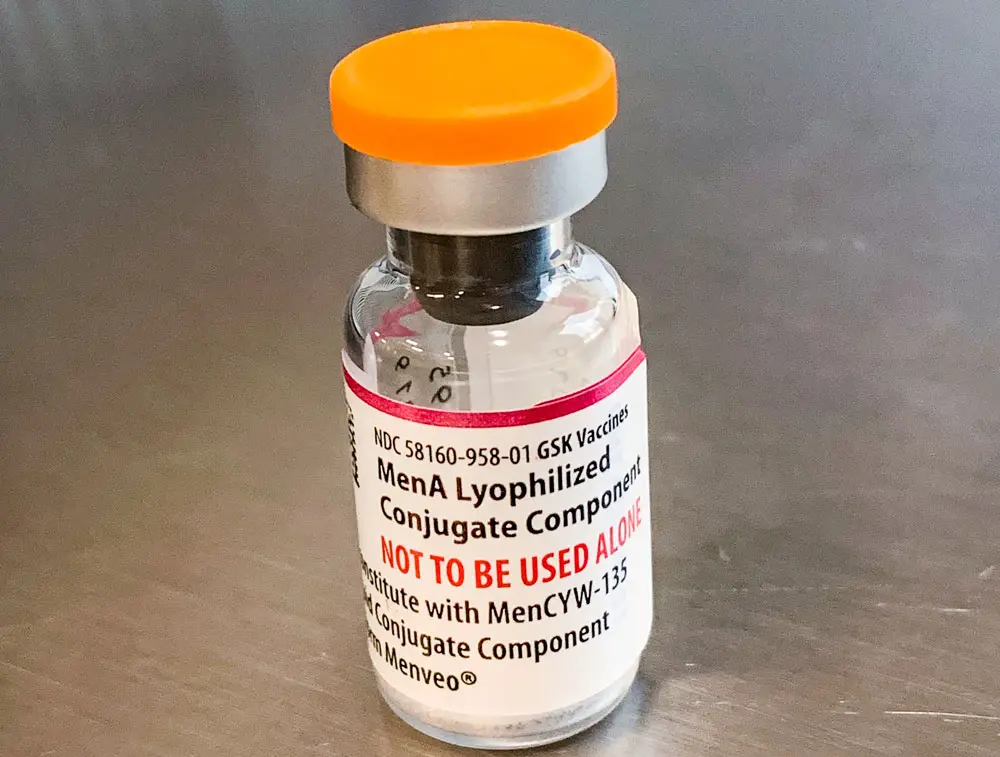
The Florida and Flagler departments of health are responding to an outbreak of meningococcal disease in Florida. The Centers for Disease Control defines the disease as “any illness caused by bacteria called Neisseria meningitidis. These illnesses are often severe, can be deadly, and include infections of the lining of the brain and spinal cord (meningitis) and bloodstream.”
Thus far, the number of cases identified in 2022 surpasses the 5-year average of meningococcal disease cases in Florida. But there are cases in Flagler County as of today, according to Bob Snyder, who heads the Flagler Copunty Health Department.
Department of Health epidemiologists are investigating each case as well as contacting people with potential or direct exposure to known cases to provide them with information and treatment options.
People spread meningococcal bacteria to other people by sharing respiratory and throat secretions (saliva or spit), the CDC states. Generally, it takes close (for example, coughing or kissing) or lengthy contact to spread these bacteria. Fortunately, they are not as contagious as germs that cause the common cold or the flu. People do not catch the bacteria through casual contact or by breathing air where someone with meningococcal disease has been.
“There is an ongoing outbreak of meningococcal disease in Florida, primarily among gay, bisexual, and other men who have sex with men, including those living with HIV,” the CDC says in a statement. “The outbreak is mostly affecting people who live in Florida, but has also affected some people who have traveled to Florida. The two most common types of meningococcal infections are meningitis (an infection of the lining of the brain and spinal cord) and bloodstream infection, both of which can quickly become deadly.”
However, the disease can be prevented and treated. Getting vaccinated is the best way to protect against meningococcal disease.
The following groups should consider vaccination with a meningococcal conjugate (MenACWY) vaccine during this outbreak:
- College and university students;
- Immunocompromised individuals;
- People living with HIV;
- Men who have sex with men;
- People in any groups listed above who received their MenACWY vaccine more than 5 years ago.
Find meningococcal vaccines, including the MenACWY vaccine, by contacting a health care provider, county health department, or pharmacy. FDOH Flagler County offers meningococcal vaccines. For more information, visit the FDOH Flagler website or call 386-437-7350.
This is a serious disease caused by bacteria called Neisseria meningitidis. Fortunately, these bacteria are not as contagious as germs that cause the common cold or flu. People do not catch the bacteria through casual contact or by breathing air where someone with meningococcal disease has been. It requires close contact over a period of time, or direct contact such as kissing or sharing drinks.
Early symptoms of the disease include fever, headache, stiff neck, nausea, vomiting, light sensitivity, confusion, and rash. Anyone who has been exposed or develops symptoms should be evaluated by a health care provider immediately. This is a rare but potentially devastating disease.
For more information about meningococcal disease, please visit the Centers for Disease Control and Prevention website or the FDOH website.





























Jimbo99 says
The world is full of diseases that the human race has no cures for. Not much anyone can do about avoiding any of them. Not like you can see them, too often someone doesn’t know they have it until it’s too late and some of them know they have something and have zero conscience about spreading it. It’s always been that way really. What can you do beyond live your life and let it ride, let the chips fall where they may.
RAW says
Now someone knows what they are talking about. I agree with you 100%!
Thanks for the great common sense information.